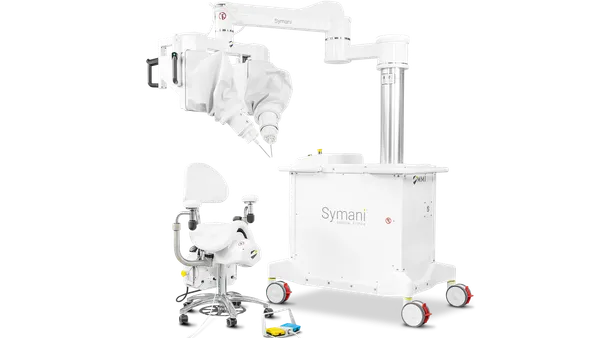Dive Brief:
- The Food and Drug Administration's proposed recommendations for the fifth Medical Device User Fee Amendments (MDUFA) drew a mixed response from patient advocacy groups in a Tuesday agency-hosted meeting. The proposal sets out how much the FDA will collect in fees from medical device companies, as well as its goals for review times and priorities for the next five years.
- Overall, most speakers at Tuesday's meeting supported the MDUFA V agreement, for the funding that would increase staffing at the FDA and provisions for patient engagement. However, some groups raised concerns that the agency relied too much on funding from medical device companies, and did not incorporate new provisions to protect people from ineffective or unsafe devices.
- The FDA is accepting comments on MDUFA reauthorization through Thursday, April 21. The agency will consider them as it makes its final recommendations to Congress. Legislators would need to reauthorize the agreement before the current version of MDUFA expires on Sept. 30.
Dive Insight:
The delayed agreement between FDA and industry largely garnered a positive response at Tuesday's hearing, with most speakers touting the funding the agency will bring in toward new hires and its programs. Per MDUFA V, the FDA will see a minimum of $1.78 billion, and could see up to $1.9 billion if it meets certain hiring goals. According to Lauren Roth, associate commissioner for policy at the FDA, the deal could bring in 273 to 387 new hires for the agency.
Patient advocacy groups supported provisions that would increase patient engagement in the regulatory process, such as using technology to reduce barriers to patients participating in clinical trials. They also supported increased staff capacity for the FDA to consider submissions with patient preference information, patient reported outcomes, or patient-generated health data.
"We're pleased to see that there are several aspects of the agreement that are focused on infusing the voices of patients into the process, and making sure that the real needs and goals of patients are considered by FDA and manufacturers," said Jennifer Dexter, assistant vice president of policy for the National Health Council, during Tuesday's meeting.
However, Dexter added the details of these processes are critical, and patients and patient organizations should be involved in their implementation at every step.
Paul Melmeyer, vice president of public policy and advocacy for the Muscular Dystrophy Association, made a similar plea to the FDA.
"We strongly support the provision intended to tackle the lack of diversity in current approaches to patient inclusion," Melmeyer said. "And again, we urge the agency to partner with patient communities already working on this very issue."
Some patient groups raised concerns about device safety, and the FDA's increasing reliance on industry funding to support its efforts. Patient groups pointed to recalls of implanted spinal cord stimulators, pelvic meshes and breast implants as examples of recalled devices that resulted in serious harms to several patients.
Michael Abrams, a senior researcher with consumer rights advocacy group Public Citizen, was "deeply concerned" that the new agreement gives device makers too much influence over federal regulators.
"The draft commitment language may well please industry, but certainly does not advance the best interests of consumers, especially for patients who rely on the FDA to protect them from ineffective or unsafe medical devices," Abrams said.
Public Citizen listed off some reforms to the review process, including requiring sponsors of high-risk implants to submit premarket approval applications with data from well-designed randomized trials, not real world events. Abrams also suggested that the staff involved in evaluating a 510(k) or PMA submission should be separate from those that were involved in providing guidance to device companies prior to their submission.
Finally, the nonprofit also recommended several transparency measures, including making information publicly available on assessments of adverse events for all approved PMAs, and making review summaries publicly available for all PMA supplements for Class III medical devices, which are implantable devices or devices deemed to have the most potential risk to patients.
Maria Gmitro, president and co-founder of the Breast Implant Safety Alliance, asked the FDA to consider Public Citizen's recommendations.
"Over the past year, I've attended these meetings and have continued to express my concerns. But I'm starting to feel a bit like a broken record," Gmitro said. "Advocates continue to have concerns about the transparency and accountability involved in this process. The MDUFA draft commitment letter provides the medical device industry more influence than it does to hold the consumer and patient's best interest for protection under safe and effective medical devices."
Gmitro referred to the impact on patients when a device is no longer deemed safe and effective.
For instance, after the FDA issued a recall in 2019 that Allergan's Biocell breast implants were linked to a rare cancer, the Breast Implant Safety Alliance heard from patients that were not informed that the implants were recalled, and had no idea which devices were implanted in their body.
"The results have been devastating," Gmitro said. "We don't want to stifle innovation. However, these devices that are harming patients were once deemed safe and effective."













